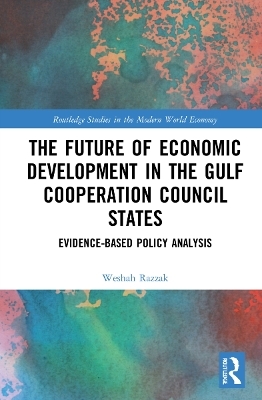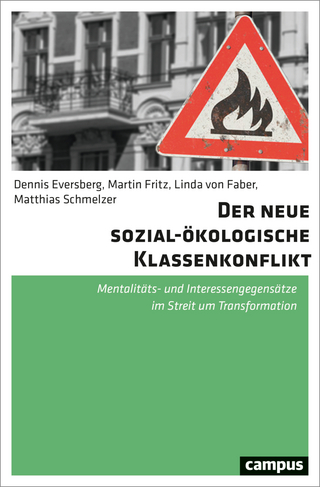
The Future of Economic Development in the Gulf Cooperation Council States
Evidence-Based Policy Analysis
Seiten
2022
Routledge (Verlag)
978-1-032-26433-2 (ISBN)
Routledge (Verlag)
978-1-032-26433-2 (ISBN)
The Gulf Cooperation Council (GCC) countries own 30 percent of the world’s proven oil reserves and largely depend on oil for their income. Yet, the GCC faces serious challenges. This book is a research–based, structural macroeconomic analysis, providing evidence-based and future-facing, policy recommendations for GCC governments.
The Gulf Cooperation Council (GCC) countries own 30 percent of the world’s proven oil reserves and largely depend on oil for their income. Yet the GCC faces serious challenges. The global demand for oil is expected to continue declining, and the average long-run oil price could become lower than its historical average in the future. This book is a research-based, structural macroeconomic analysis, providing evidence-based and future-facing policy recommendations for GCC governments.
First, it analyzes historical data to explain the macroeconomic performance and economic policies of the GCC countries from 1970 to 2019. Then it presents ten-year dynamic stochastic projections from 2020 to 2030. The book examines debt sustainability and optimal fiscal policies – i.e., government spending and taxation. It also analyses structural issues, such as savings and productivity, from an institutional perspective, taking into account education, the labor market, and pension funds, as well as other factors that have a close effect on economic performance. The book is comprehensive and thorough, it relies on extensive econometric analyses, including rigorous time series analysis. The author uses both calibration of theoretical models and estimation, facilitating projections for the next decade of key economic variables under different policy scenarios. The book also assesses what the future of the GCC economies will look like if climate change and the COVID-19 pandemic continue to adversely affect oil supply and demand and the price of oil, given their current policies and institutions.
As well as scholars and researchers of economics and finance, the book will engage policymakers in central banks, treasury departments, planning councils, research institutes, and think tanks.
The Gulf Cooperation Council (GCC) countries own 30 percent of the world’s proven oil reserves and largely depend on oil for their income. Yet the GCC faces serious challenges. The global demand for oil is expected to continue declining, and the average long-run oil price could become lower than its historical average in the future. This book is a research-based, structural macroeconomic analysis, providing evidence-based and future-facing policy recommendations for GCC governments.
First, it analyzes historical data to explain the macroeconomic performance and economic policies of the GCC countries from 1970 to 2019. Then it presents ten-year dynamic stochastic projections from 2020 to 2030. The book examines debt sustainability and optimal fiscal policies – i.e., government spending and taxation. It also analyses structural issues, such as savings and productivity, from an institutional perspective, taking into account education, the labor market, and pension funds, as well as other factors that have a close effect on economic performance. The book is comprehensive and thorough, it relies on extensive econometric analyses, including rigorous time series analysis. The author uses both calibration of theoretical models and estimation, facilitating projections for the next decade of key economic variables under different policy scenarios. The book also assesses what the future of the GCC economies will look like if climate change and the COVID-19 pandemic continue to adversely affect oil supply and demand and the price of oil, given their current policies and institutions.
As well as scholars and researchers of economics and finance, the book will engage policymakers in central banks, treasury departments, planning councils, research institutes, and think tanks.
Weshah Razzak is Honorary Research Fellow at the School of Economics and Finance, Massey University, Palmerston North, New Zealand.
1. Introduction 2. Some Stylized Facts 3. The Oil Dependency Dilemma 4. The External Debt 5. Is the Level of Government Spending Optimal? 6. Can Taxes Resolve the Economic Problems? 7. Savings, Productivity and Other Structural Issues 8. Final Remarks
| Erscheinungsdatum | 06.07.2022 |
|---|---|
| Reihe/Serie | Routledge Studies in the Modern World Economy |
| Zusatzinfo | 27 Tables, black and white; 73 Line drawings, black and white; 73 Illustrations, black and white |
| Verlagsort | London |
| Sprache | englisch |
| Maße | 156 x 234 mm |
| Gewicht | 453 g |
| Themenwelt | Sozialwissenschaften ► Soziologie ► Spezielle Soziologien |
| Wirtschaft ► Volkswirtschaftslehre ► Makroökonomie | |
| Wirtschaft ► Volkswirtschaftslehre ► Ökonometrie | |
| ISBN-10 | 1-032-26433-0 / 1032264330 |
| ISBN-13 | 978-1-032-26433-2 / 9781032264332 |
| Zustand | Neuware |
| Informationen gemäß Produktsicherheitsverordnung (GPSR) | |
| Haben Sie eine Frage zum Produkt? |
Mehr entdecken
aus dem Bereich
aus dem Bereich
Mentalitäts- und Interessengegensätze im Streit um Transformation
Buch | Softcover (2024)
Campus (Verlag)
34,00 €


